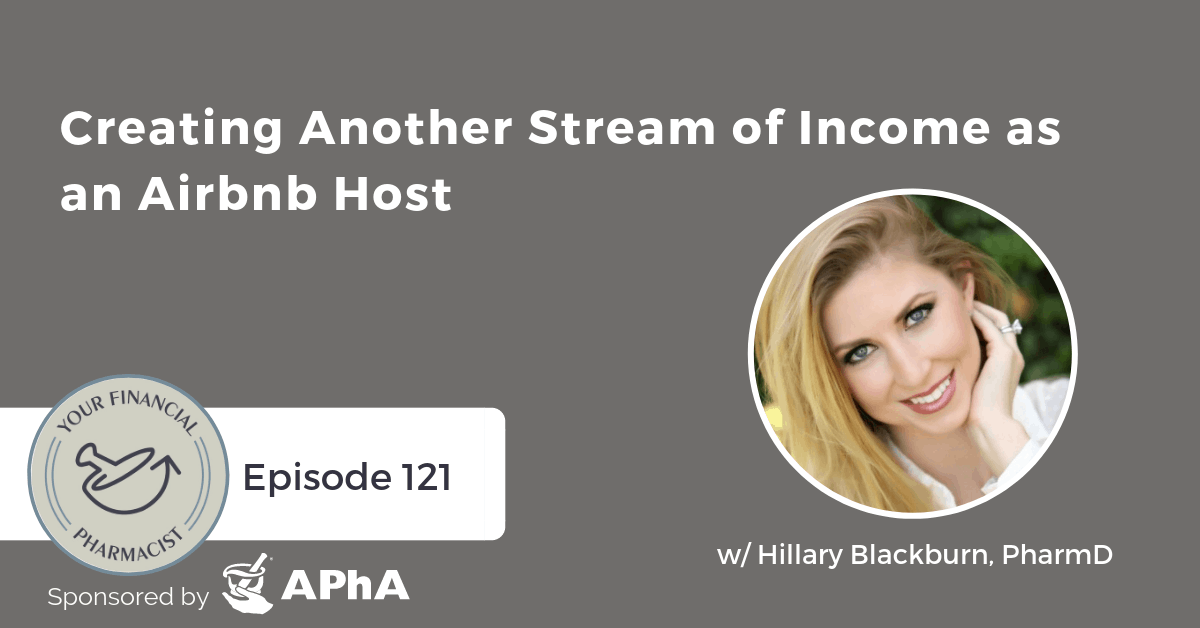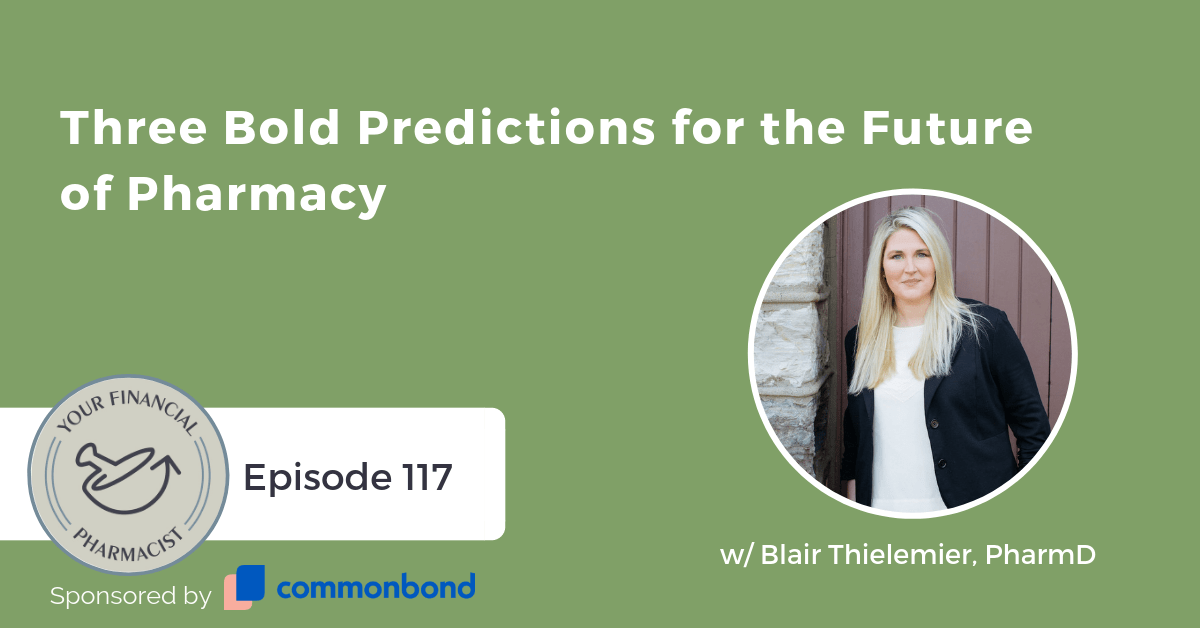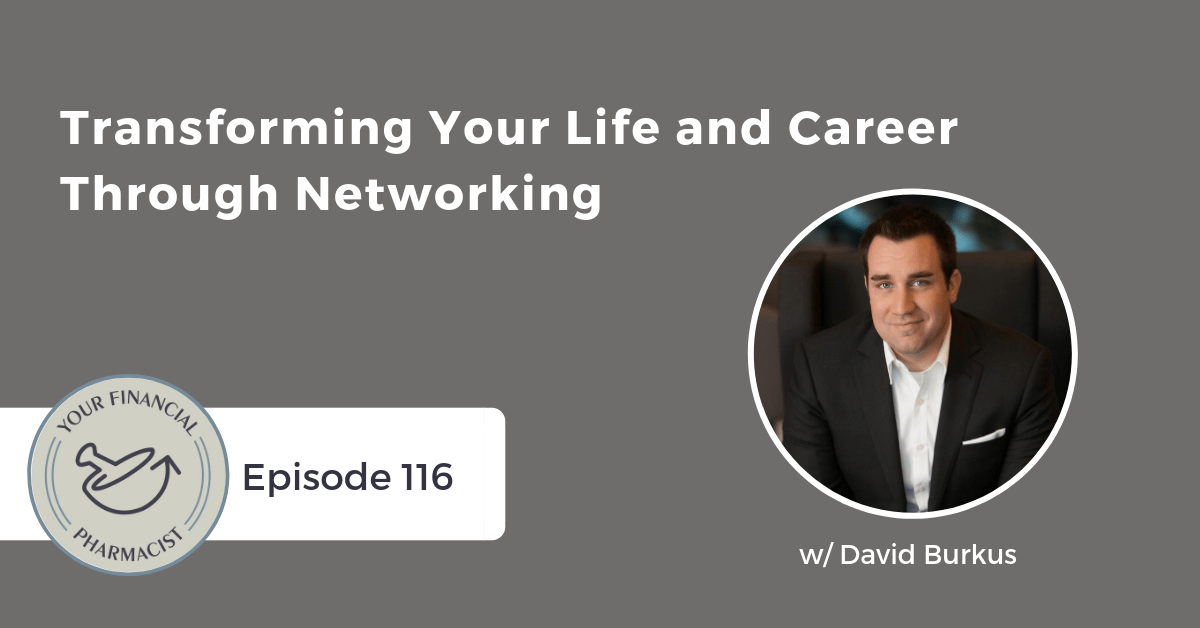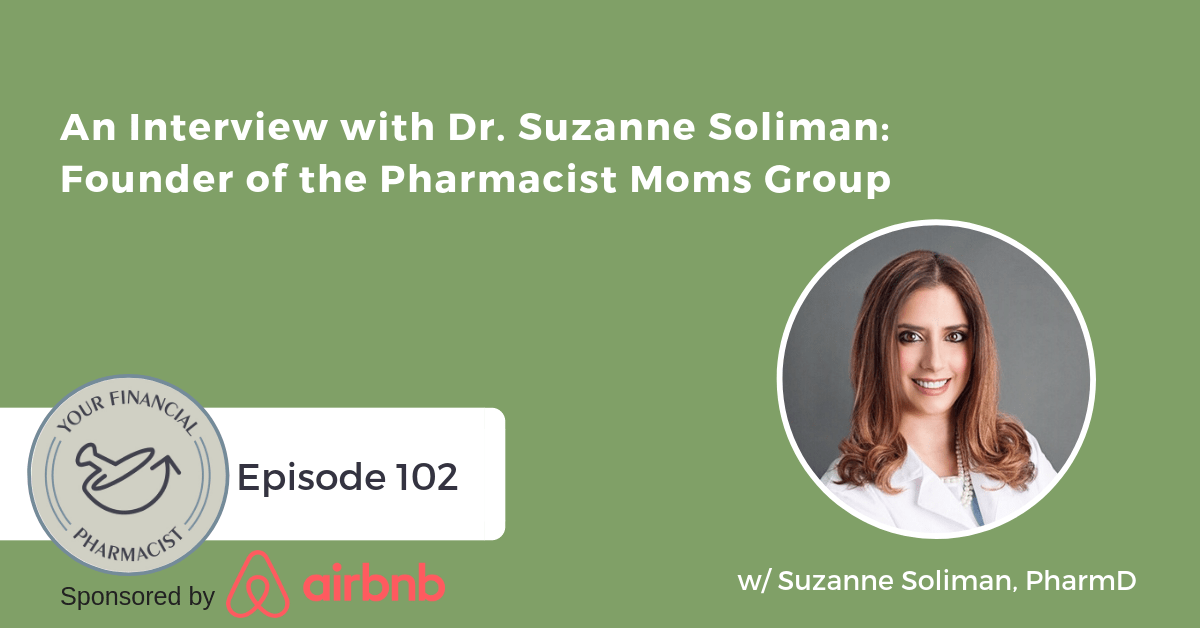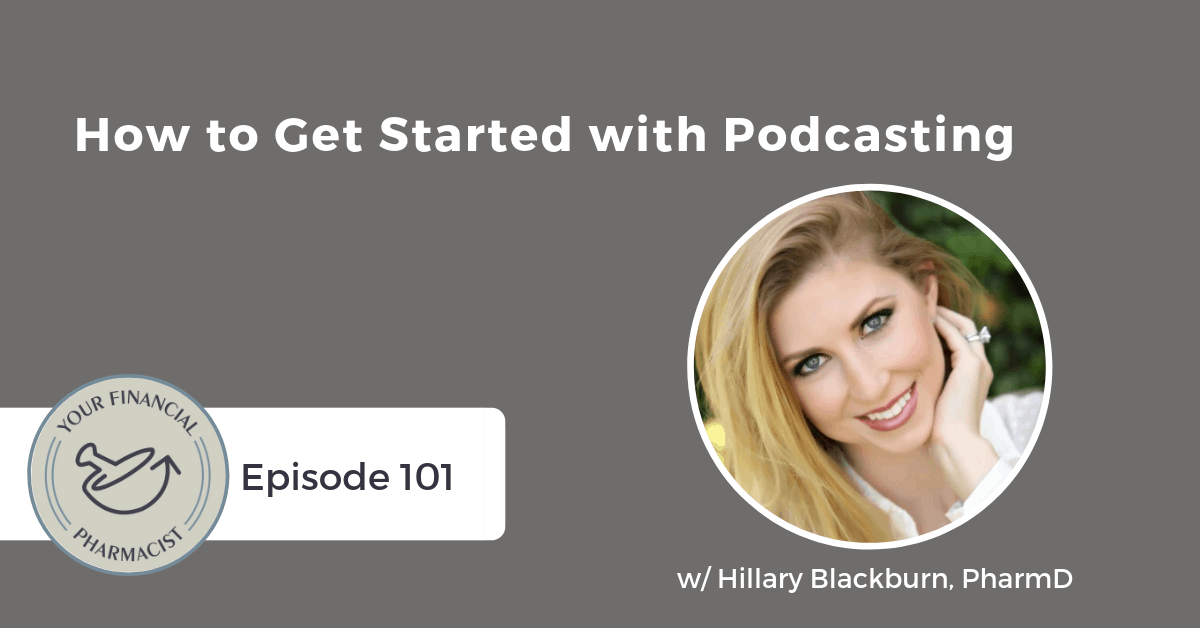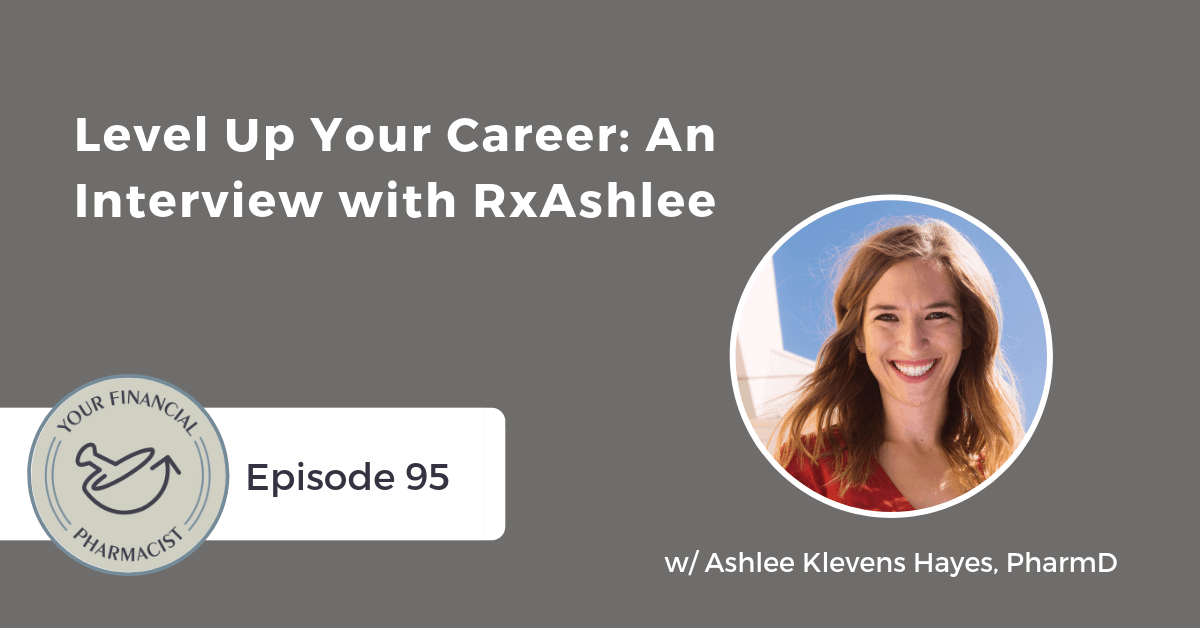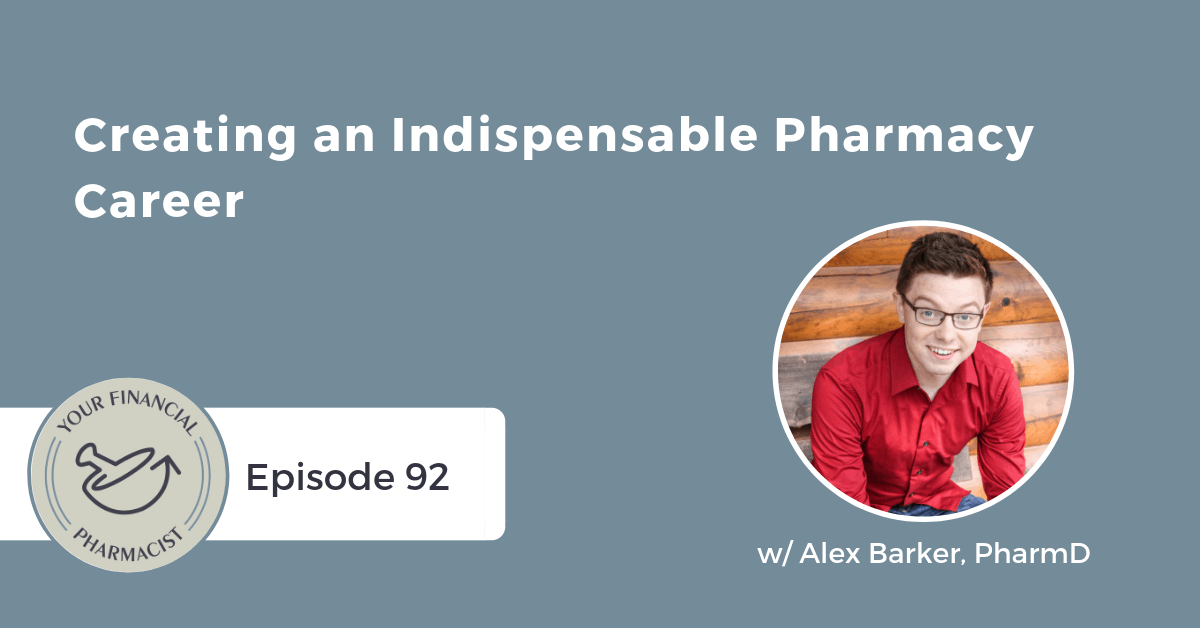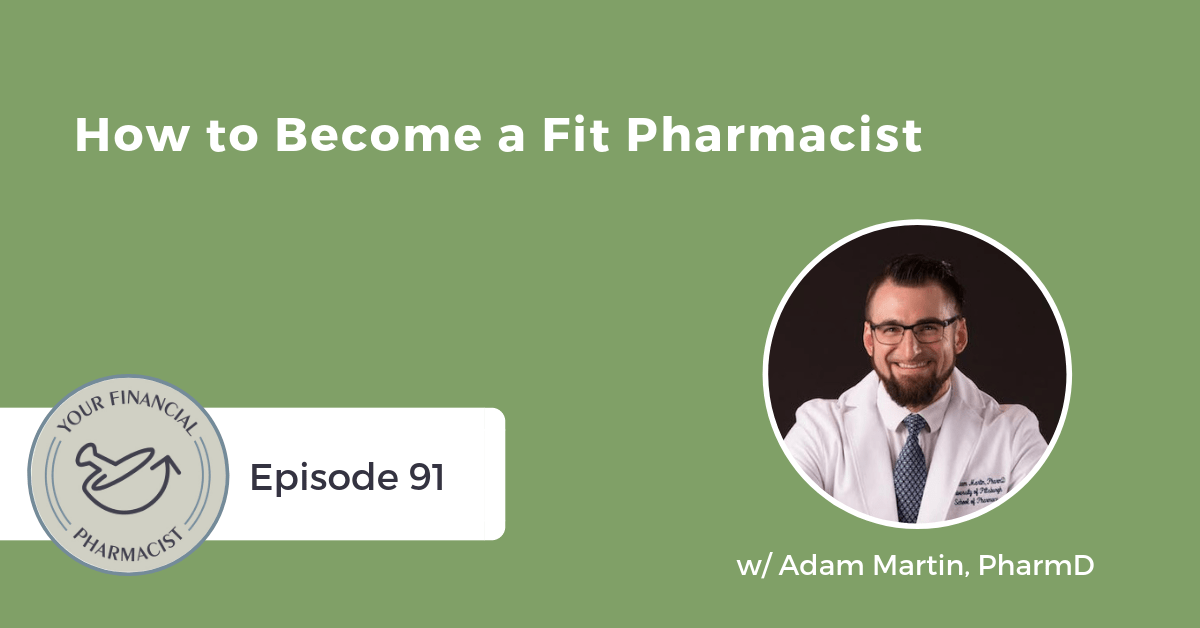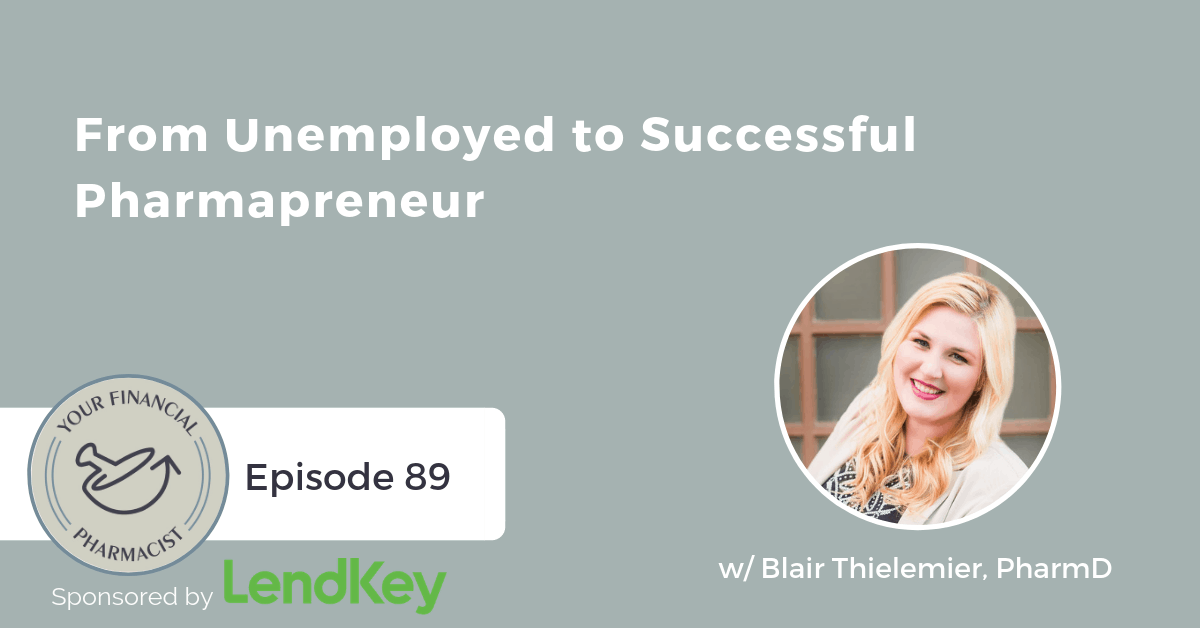Creating Another Stream of Income as an Airbnb Host
Tim Church interviews Dr. Hillary Blackburn about how she’s monetizing her personal residence as an Airbnb host. Hillary has been able to earn thousands of dollars each year making this side hustle another consistent income stream for her and her husband.
Summary
Dr. Hillary Blackburn and her husband, Chad, have been monetizing their personal residence as hosts on Airbnb for the last five years. They use this additional income, which has totaled to over $40,000, as their travel fund. Hillary talks through what it’s like to be a host through Airbnb.
Hillary explains that Airbnb is like Uber for vacation rentals and says that it’s a great option for travelers, especially in areas where hotel prices are really high. Hillary and Chad rent their home in Nashville 14 times a year. Typically when the home is rented, they stay with family that happens to be in town or use that time to travel themselves.
Hillary explains that sometimes it’s difficult for her to share her personal space, but her husband doesn’t mind if people are there. Each year they re-evaluate whether they’d like to host their home on Airbnb and he reminds her that they can use the income for their travel fund so they don’t have to take any money out of other savings for their trips. Chad takes care of managing their profile, reservations and communicating with guests. Hillary says that this side hustle is easier on her than picking up shifts at a pharmacy.
Their home is a four bedroom, two bathroom house located in a really convenient area of the city and is generally rented out for about $600 a night. In the rental price, they’ve built in a cleaning fee and have their home cleaned by a maid once a month. The couple has friends that have bought second and third houses to host on Airbnb. Hillary explains that if you purchased a condo in Nashville and paid $2,000 in mortgage each month, you’d essentially be able to make that payment by renting it out for two weekends.
Hillary and Chad have had relatively good experiences renting their home on Airbnb. Although it’s sometimes difficult for her to allow strangers into her home, she takes precautions like locking her closet, locking the basement, and making sure certain valuables, including pictures, are secured. Her advice on becoming a host is to first use Airbnb as a guest and then simply go to the website to set up a host account.
Mentioned on the Show
- APhA – use coupon code A19YFP for 20% off your APhA membership!
- YFP 101: How to Get Started with Podcasting w/ Hillary Blackburn
- Talk to Your Pharmacist Podcast
- Natural Products Resource Center
- Pharmacy Residency Bootcamp
- Airbnb
- Talking to Strangers: What We Should Know About the People We Don’t Know by Malcolm Gladwell
- Ring
- Airbnb Earnings Calculator
- Hillary on Facebook: @talktoyourpharmacist
- Hillary on Instagram: @talktoyourpharmacist
- Hillary on LinkedIn: Hillary Blackburn
- Hillary on Twitter: @hillblackburn
- Pharmacy Advisory
- YFP’s Financial Education with APhA
- Your Financial Pharmacist
Episode Transcript
Tim Church: Hillary, thank you so much for coming back on the show.
Hillary Blackburn: Yeah. Thanks, Tim. It is great to be here.
Tim Church: Yeah, I think you’re one of the few guests who has made a repeat experience, so always happy to see that.
Hillary Blackburn: Well, glad to share some more updates and some other ways that I’ve been making a little extra income and hopefully will be a good thing to share with your listeners.
Tim Church: Awesome. Excited to hear about it. But before we kind of go there, knowing that you live in Nashville, this question has just been burning that I have to ask you. OK? You have to sing karaoke. What song are you picking?
Hillary Blackburn: Oh gosh. You know, I am not always a karaoke person. I’ll tell you what my husband always sings. It’s Big and Rich, “Save a Horse, Ride a Cowboy.”
Tim Church: Ooh, that’s a classic hit.
Hillary Blackburn: Yeah. So I think he probably enjoys doing it more than me. I just like to be the backup dancers and things.
Tim Church: OK.
Hillary Blackburn: But yes, lots of good music here in Nashville. Definitely come visit and we can check out some of the spots on Broadway.
Tim Church: Love to. Love it there. So it’s been about five months since the last time you were on the show. And before we talk about kind of a different way that we didn’t talk about before on how you’re earning some extra income, can you give us a little bit of an update about what’s happening with your career and your businesses?
Hillary Blackburn: Yeah. So since May, I started an MBA course and have been doing that. That has been taking up a lot of my time. But it’s something that I had always wanted to do and really wasn’t going to commit to it if, you know, it was too expensive. Again, financial, that was a big barrier. So we have some really amazing programs here in Nashville. Vanderbilt has a very nationally recognized, Vanderbilt Owen School of Business, Belmont has a great MBA program. But I really didn’t want to commit to a $50,000-60,000 another degree already having a pharmacy degree. So found one that is online, so that’s scalable and very affordable and something that my employer was able to help finance as well. So just all wins on that front. And this one is self-paced and competency-based, so I hope to have it finished within six months. So having that existing experience in business over the past 10 years has been a lot to draw from but definitely learning in the key areas that I want to learn in. So that’s been a lot of what’s been keeping me busy. But as far as some of the other business things that I’ve been working on, of course still doing the Talk to Your Pharmacist podcast, and I do make some revenue from that. We’ve got two great sponsors, RxDestroyer, which is a drug disposal system, and Theraworks Relief, which is a topical pain foam, pain reliever. And then of course, I have just launched a new podcast called “The Natural Products Resource Center” focused on helping to educate our pharmacists and others about separating fact from fiction around natural products, particularly medical cannabis since that is certainly taking the medical community by surprise. And you know, I’ve got also a pharmacy residency boot camp online for those who are gearing up for residency. So that’s just a couple of recordings, sessions that I did last year and wanted to make those available for people at their own convenience, so it’s all online so kind of like the MBA, being able to take those chunks of learnings whenever it’s convenient for you and just kind of I was able to basically download all of these tips and things that I’ve crowdsourced from other residency directors and organizations that are actually doing the residency process. So they’re doing the recruiting and hiring, so what they’re looking for. And then just tips for navigating Midyear. So I have been staying busy, Tim.
Tim Church: I would say so. It sounds like it. I mean, I’m just blown away. I feel like you just keep mentioning new things that I don’t even know about by the time that we got on this recording. So that’s really exciting. So it sounds like the MBA is taking up quite a bit of time. How many classes are you taking at one time?
Hillary Blackburn: Yeah, so I take — the way this program, it’s Western Governors University, which is a nonprofit university started by 19 governors to really make higher ed really affordable. They set it up as six-month terms, so you can take as many classes as you want in one term. So if as soon as I pass one, then I’m going onto the next. So I’ve already hit leadership and communications and marketing, ethical leadership, accounting — accounting and financial management were definitely the areas that I’ve had to dig in and really study. But right now, my husband and I don’t have children, and so we can really — if we’re not traveling or doing something fun, which we love to do, we’re pretty buckled down on the weekends and can knock out 20-30 hours in a weekend of committing to studying.
Tim Church: So when a lot of people are binge-watching “Downton Abbey,” “Poldark,” other shows, you’re basically hustling, grinding it out, trying to not only further your education but also your businesses as well.
Hillary Blackburn: Right. Don’t ask me if you want to know the latest TV show. Although I did watch all of the “Outlander” series that are out. So I’m a big fan of “Outlander.”
Tim Church: OK, OK. Well, you mentioned to me after a call that we had a number of months back that hey, by the way, I also have another side hustle. And that’s kind of why we set this podcast up because I think it’s really a cool and somewhat I’d say — I don’t know if I want to say easy, but not as time-consuming as other things and other side hustles that are out there. But that is becoming an Airbnb host.
Hillary Blackburn: Yeah.
Tim Church: Talk about what Airbnb is for those of the people out there that don’t know what it is, even though it’s been around for a number of years, and how do you become a host?
Hillary Blackburn: Yes. So Airbnb, for those that are not familiar, it is basically like Uber for vacation rentals. So people are probably most familiar with VRBO or others. Well, Airbnb has basically helped any homeowner or apartment owner or whatnot, depending on, of course, whether your city and state allow it and whether you have to have any type of licenses and things. And if anyone has those types of questions, my husband navigated all of that. He had to go down and you’ve got to get your permit and there’s a fee for that. And then you have to take out taxes and all of those regulatory things. But Airbnb is such a great option not only for travelers — the very first experience I had with Airbnb was as a traveler. So we were going to Houston for a wedding and hotels were all really expensive. We wanted to be a little bit more affordable and booked a studio through Airbnb. And the great thing about Airbnb is that just like Uber or Lyft, there are ratings and reviews. So not only do you rate and review the accommodation, but you as a guest are being rated and reviewed. So it’s because of that review type of setup that, you know, that kind of I guess dissuades any of the fears that someone stranger is going to come into my house and mess it up because you do have that opportunity to review them. And so if you have a bad guest, you’re going to rate them bad, and they won’t ever be able to use the service again. And Airbnb does allow for you can put in for cleaning fees, you can set that into your price. You can also — they have a very hefty insurance package. And then if you notice anything that potentially does break or something, you can always charge the guest. So they have all of those things, insurances in place. But since we have been doing it with our own home for the past 5+ years, we really haven’t had any major issues. We are sensitive. We don’t let all the bachelorette parties come because we are in a residential area. And you know, we live here. It’s not a second property that we just have furnished. We actually live in the home and rent it out up to 14 times per year because after 14 times per year, then you have to start doing like the federal taxes. And for us, you know, usually it works out that if someone’s wanting to come stay, we are traveling anyway or we have family in town and we just can go and stay with them.
Tim Church: So Hillary, I want to back up just for one minute because I bet there are people listening right now and saying, ‘Hillary, are you kidding me that you are letting complete strangers stay in your own home?’
Hillary Blackburn: Yes. I am a little crazy, yes. So Tim, as I mentioned, I do have this love-hate relationship with Airbnb. So as a guest, I have loved being able to use it. Now, don’t get me wrong. If I’m traveling for work and then I’m probably going to use a hotel because work is paying for it. And I still try to be very frugal, of course, but there’s something about a hotel that you kind of know what you’re going to get. But there’s definitely some gems, some like really awesome houses. Or for instance, if you’re traveling to a city and you’ve got a big group, you could all rent out a big house and then you’re all together instead of being in a couple, you know, lots of different hotel rooms. So alright, getting back to letting people stay in our home, so my husband started doing it at our house before we got married. So he was an early adopter and had roommates, and it was a great way for them to rent out their fourth room for all these people that like to visit Nashville. And I actually did it a couple of times before we got married because I had a two-bedroom condo that the roommate, my roommate had moved out, and so I was letting people come in to that second room. I had my door locked but all of the general areas were fine. So once we got married, I’m like, OK, we’re not going to do Airbnb anymore. But it’s funny because if you start to think of your house as an asset that is just sitting here and not making any money, then that’s kind of the incentive that my husband uses. And then the way he gets me to do it is that that is our travel fund. So if anybody knows anything about me, they know that I love to travel, we love to travel together. We’ve been on some amazing trips. And a lot of the way that we’ve been able to do those is from this extra income. So we’re not using — we’re dual income, no kids, so we’re just trying to socket away for retirement, live off of one income. So we’re living off of mine. And so instead of having to steal from our retirement and our savings to do all of the amazing travel that we do, you know, we’ve got a trip to San Francisco coming up this week and then we’re going down to Mexico City in November with a group and hopefully we’re going to use our Southwest companion pass to go to Hawaii over Christmas. So those are just some of the things — but those are some of the big trips that we’ve kind of done all year. So we’re kind of all queueing those up for Q4 it seems.
Tim Church: So he knew exactly how to persuade you into this, right?
Hillary Blackburn: Yeah, you need to know your spouse. Exactly. So a lot of my friends, a lot, a lot of my friends would say, ‘Absolutely no way am I going to let somebody come into my house and stay here.’ And there are definitely times when I have had tears and we’ve had some — Chad and I have had some really difficult conversations. And it’s like every year, I’m like, never again. And then I’m like, oooh, but we want to go on this amazing trip. So it’s kind of like when I see the trip in mind, I’m like, OK, OK, we can do it.
Tim Church: And is that because just the thought of more strangers coming into the house? Or have you had some somewhat bad experiences that make you hesitant to continue on?
Hillary Blackburn: Well, I don’t know if this is just being a female, but you know, he operates very differently than I do. And he doesn’t mind if people are here at all. For me, I’m like, oh, this is my personal space. You know, this is our home, like I have all of my personal pictures, all of the furniture that we’ve gotten and different things. Like all my clothes, I do lock my closet, so that is something that I do. But you know, there’s certainly areas like my bathroom, I’m like, well, I definitely have toiletries out for guests, but people are nosy, so people could be like — but yeah. It’s just something that you kind of just have to get over. I was just listening to Malcolm Gladwell’s book, “Talking to Strangers,” and yeah. It’s like instead of just thinking that everybody is out for the bad, you’ve kind of got to think about air on the side of truth. And so I think just knowing that people want to be respectful, they’re coming to stay in your house, they know it’s a house. We do have house rules. There is a ratings system. We really haven’t had any — I think one time before we got married, we had some partiers. And the police were called once or twice during the whole weekend by our neighbors. So that was not ideal. And we’ve had maybe one other issue where we’ve had like a wine glass break, but they were cheap wine glasses. You know? And so I really haven’t had anything where like I’ve had a stain on a sofa or anything like that. But heck, if that happened, then you just charge them. And then you get a whole brand new sofa.
Tim Church: Right, there you go.
Hillary Blackburn: So part of me is like, well, before I really do a whole lot of any kind of redecorating, now’s the time. Once we have kids and everything, then that gets a little bit harder to do. So right now, we’re just really trying to utilize all of our resources and be good stewards of what we have.
Tim Church: Well I think the other thing too is that as a host, not everybody knows this, but you get up to a $1 million worth of property damage protection in case you need it.
Hillary Blackburn: Yes.
Tim Church: And so that is one of the things that I think can make it a little bit easier to let people be in your primary residence or whether you have another property, knowing that you do have some protections in place.
Hillary Blackburn: Yeah, exactly. And then on the flip side, if you are traveling, like to Nashville, for instance, the hotel prices are outrageous. There’s not enough hotels for all of the people who are wanting to visit. And you know, you can really get some great deals on Airbnb and make your vacation really affordable.
Tim Church: Definitely. I was going to get into that a little bit, but I think that’s one of the biggest reasons why it’s becoming so popular with the millennial generation. And I was looking at some statistics and that 30% of millennials, they’ve had a very positive opinion of the service. And about a quarter of them have stayed at least once in an Airbnb. And definitely I think it’s disrupting the hotel market to some degree because not only is it more economical in many cases, but I think also to especially some of the more exotic places or just different is that people get a really unique experience.
Hillary Blackburn: Exactly.
Tim Church: So let’s talk a little bit about the economics. You mentioned that your cap per year is 14 different reservations through the year. Is that correct?
Hillary Blackburn: Actually 14 nights. So I’m really not doing it that much.
Tim Church: 14 nights. OK.
Hillary Blackburn: Yeah. I mean, we have some friends here that have bought second and third properties. So a lot of people want to buy a second home and make money from that, put it on the rental market. You can honestly make more money on the Airbnb market than on the regular rental market. So say, you know, a Nashville rate for maybe a condo, two-bedroom condo, $2,000. Well, you could make that in two weekends if you were doing Airbnb. So you know, you don’t have that guarantee that it will be booked up all the time, but if you start getting a lot of great reviews, then you become a Superhost and then you get rated higher, and so people are going to find you. So that gets a little bit into the marketing of your Airbnb I guess. But we could talk more about that.
Tim Church: So are you pretty consistently booked for those nights?
Hillary Blackburn: Well, so we — since we only have like 14 nights, we leave open our calendar a little bit during spring and fall. We found that those are two of the biggest times of year. So fall being that we’re a mile away from Vanderbilt, lots of people come in wanting to stay during the fall. And then spring in Nashville is very fun. So that was just seven weekends or if we have a three-night stay or two three-night stays, then that’s five weekends. So yeah, we don’t have just 14 days out of the year. We’ll close off for the rest of the year. We have one more Airbnb at the end of the year — I mean, sorry — at the end of the month, and then we won’t do it again until 2020 if we do, which I feel like I’m getting more and more comfortable. Another thing, too — so we have Ring, which is basically I guess a webcam for your front door or something. I feel like I should be getting some royalties for all of these products that I’m promoting.
Tim Church: Yeah, exactly.
Hillary Blackburn: So Ring, we had that installed maybe about a year or so ago. And you can see when packages are dropped from Amazon, you know, a lot of time people have challenges with people stealing packages. We didn’t have that issue, but just for more security purposes, I obviously like privacy and security. And those are two values that I hold dearly. And so it’s just nice to be able to see like when there’s movement at your front door, you have a package, who’s at your door while you’re away. Maybe you’re traveling and on vacation, you want to see what’s going on at your house. Ring is great for that. But what I’ve found is that I have to turn off Ring when Airbnb guests come because for me, it’s like out of sight, out of mind. I don’t want to know who’s staying there, when they come and go, any of that. I let my husband handle all of that because otherwise, it just works me up into a tizzy. So he does all of the management for our Airbnb. He’s talking with the guest, he shows up and does a walk-through with them. Basically, I think once they know that you live there and it’s your home, then they’re going to treat it more respectfully. So he manages all of that. So that’s what we’ve found works for us.
Tim Church: So what does a typical night, what does it cost to stay in the Blackburn residence bnb? Actually, I was going to ask before you answer that, do you have a nickname for your Airbnb property?
Hillary Blackburn: Anchor Down.
Tim Church: Alright.
Hillary Blackburn: So since it’s close to Vanderbilt, it’s called Anchor Down because that’s kind of their motto or whatever because they’re the Commodores.
Tim Church: OK.
Hillary Blackburn: So yeah. So also, Airbnb has an algorithm available. So they know when there are hot markets. So you know, maybe the Labor Day weekend, Vanderbilt-Georgia game, or other weekends, like the Draft. We were out of our house for the draft weekend too. Lots of people come in. So when those weekends hit, then the price goes up. So a typical price per night is usually around $600. And we have a four-bedroom, two-bath house. It is really conveniently located, you know, close to downtown, within the 440 Loop, it’s a beautiful Craftsman-style home. So it’s amazing. We were able, fortunate to have bought this in the downturn. So my husband bought it 10 years ago, so in 2009, and so of course, the property value has just increased over the past 10 years with Nashville being such a hot market. So hopefully when we’re ready to sell, we’ll be able to do well. But yeah, so usually, it could be anywhere around $600 a night. So once they take out taxes and things, like this past weekend, we made $1,200, yeah, just under $1,200. So not too —
Tim Church: So that was the profit to you?
Hillary Blackburn: Yeah, profit.
Tim Church: Wow.
Hillary Blackburn: So it’s way easier than me going and picking up a shift at a retail store, which I still work PRN but have not been doing that as much because I have all of these other things keeping me busy. But yeah, so for changing out the linen, I change out the linens, I change out the towels, I do lock my closet, he locks our basement. We pull out a few really personal pictures, make sure that our refrigerator is cleaned out. I don’t remove all the condiments and everything. I used to be way more intense about what I would clean out and what I wouldn’t. But honestly, sometimes people end up leaving us food. They’re like, ‘Oh, we have all this extra alcohol left and we’re flying out.’ We’re like, ‘Great.’ So yeah. I mean, it’s been something that we’ve been doing for almost five years. And you know, we’ve been able to really make some awesome memories traveling and not have to steal from our other funds.
Tim Church: Yeah, so it definitely sounds like yes, there are definitely some concerns and maybe some inconvenience around being a host and doing that.
Hillary Blackburn: Totally.
Tim Church: But the opportunities that being a host gives you and affords you really outweighs all of those other things and concerns. Would that be fair to say?
Hillary Blackburn: Yeah, I would say that. And eventually, are we always going to do Airbnb? Probably not. But for right now and the home that we’re in and the time in life that we’re in, it is a great way to make some extra income.
Tim Church: And so what would be a typical yearly earning that would actually be profit for being a host for your property?
Hillary Blackburn: Yeah. So I guess anywhere like $8,400?
Tim Church: OK, OK. That’s a nice side hustle. And you said this — what year is this?
Hillary Blackburn: We’ve been married four and a half years. And he’s been doing it for six. And he actually did more than 14. They changed a lot of the rules. So I would say even conservatively with the 14 days, we’ve made $42,000 in five years.
Tim Church: So you really are making sure that your house is an asset.
Hillary Blackburn: We are, yes. And we get it cleaned. We have a maid that comes every month.
Tim Church: Yeah, that’s what I was going to ask you is so you’re changing out some of the linens, but are you paying someone to come in and clean between every time there’s a guest?
Hillary Blackburn: Yes, but I already have a housekeeper come once a month just to help me keep everything clean.
Tim Church: So you mentioned kind of the average cost per night for your Airbnb. Does the Airbnb platform automatically adjust during those points where they think you can charge more?
Hillary Blackburn: It does.
Tim Church: Or is that something that happens automatically?
Hillary Blackburn: Yes.
Tim Church: OK.
Hillary Blackburn: Yes. So it’s just supply and demand.
Tim Church: So you don’t have to necessarily guess what the best price is going to be or trying to always go higher than what the standard or recommended amount would be.
Hillary Blackburn: Right. And they allow you to set your own price and, you know, you can also block your calendar for certain dates when you don’t want people to stay. You get to talk to the people or you hear they’re for a bachelorette party, and they’re like, ‘No, we’re here for a family reunion.’ We’re like, ‘Great. We love family reunions because the moms and the grandmoms always end up cleaning before they leave.’ So yeah. For the most part, it’s been really pretty great.
Tim Church: What tips would you have for people who are interested and maybe want to get started? And what should they avoid when they first become a host?
Hillary Blackburn: You know, I would just check out the Airbnb — you know, I would be a guest first, actually. I would totally start with being a guest. Check it out as a guest the next time you’re traveling, see how it works. It’s very easy. They even have an app, so you’re like literally texting and communicating with your host. So you get that experience, and then you basically just get on the Airbnb website. They have a different profile for you if you’re a host.
Tim Church: So one last question, Hillary. What do you do or what have you done to make the guest experience memorable? Is there anything special?
Hillary Blackburn: You know, one of the things that we do is you know, we have a guide, we put bottled waters by everyone’s bed, just making sure the house is clean and orderly, and then just being a really responsive host. So I think that we do all of that and have always had really great reviews.
Tim Church: And has that got you to that superhost status that you were talking about a little bit earlier?
Hillary Blackburn: You know, we did have superhose status but only doing it for 14 times out of the year, it’s kind of hard to maintain that.
Tim Church: Well Hillary, thank you so much for coming back on and sharing a really cool side hustle. I think it’s a great way to earn extra income, whether you’re using your own residence or whether you have an additional space or property because as you mentioned, it doesn’t take as much time as going out and working an 8-10 hour shift to pull that in. Now, obviously, it’s going to depend on where you live and kind of what the rates are. And if you’re interested in learning what your space or property would rent for, you can check out our Airbnb earnings estimator, and that’s at YourFinancialPharmacist.com/airbnb. So Hillary, thank you so much for coming back on the show. What is the best way for someone to reach out and contact you?
Hillary Blackburn: Yeah, so I am on all of the different platforms. So Instagram, @talktoyourpharmacist and Facebook @TalkToYourPharmacist, I have a page as well. Also pretty active on LinkedIn. You can search for me at Hillary Blackburn and then on Twitter @hilblackburn. Oh, and of course my website, www.pharmacyadvisory.com.
Tim Church: Well thank you so much, Hillary, and looking forward to all the work and what you have ahead.
Hillary Blackburn: Awesome. Thanks so much for having me back as a guest.
Recent Posts
[pt_view id=”f651872qnv”]

